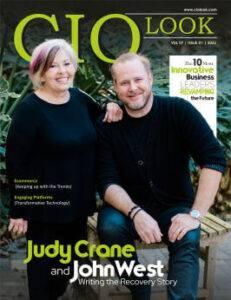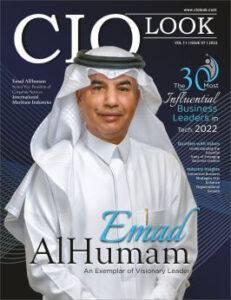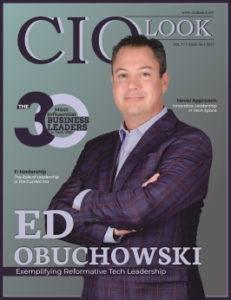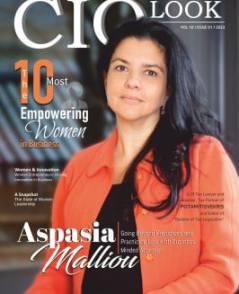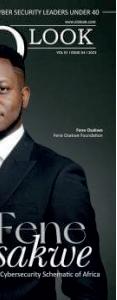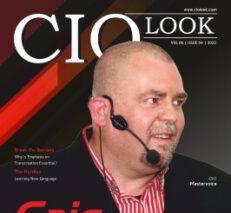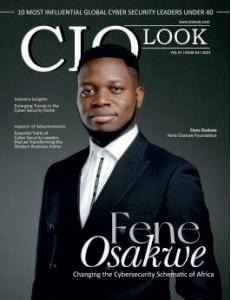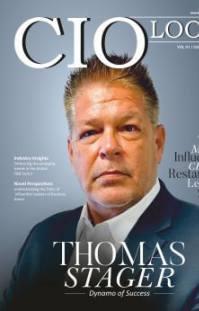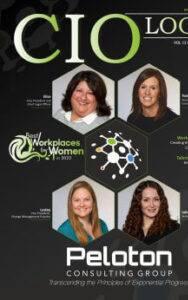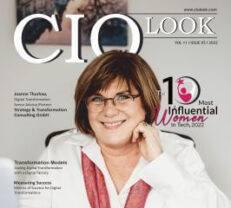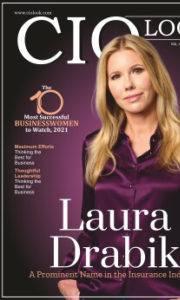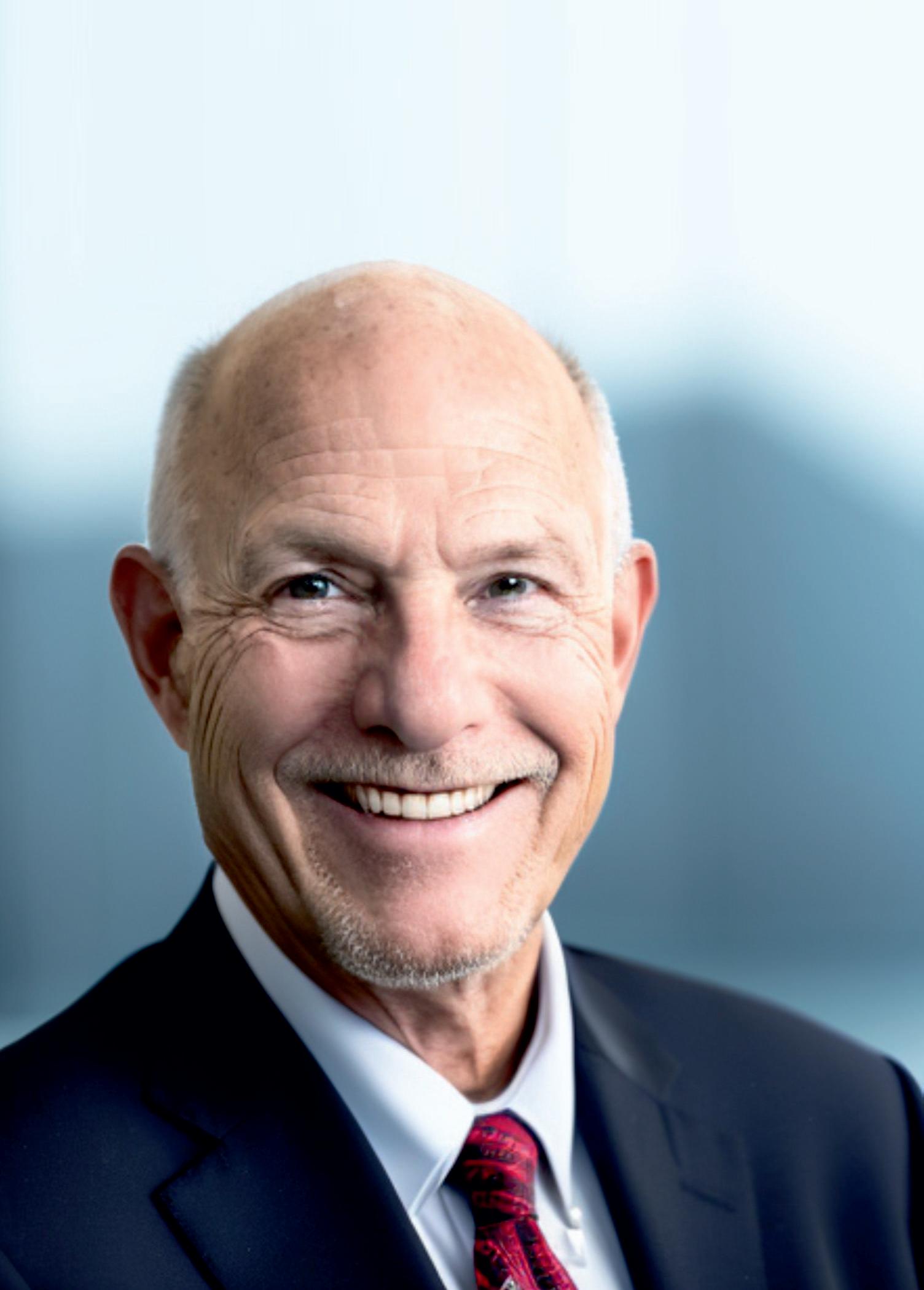










Education is undergoing a significant transformation,
influenced by rapid innovation, globalization, and evolving societal needs. As traditional teaching modelsadapttothedemandsofadynamicworld,theroleof forward-thinking educators has become increasingly vital. Across the globe, a new generation of academic leaders is risingtomeetthischallenge.Thesevisionaryprofessionals are not only responding to change but are actively leading effortstoreshapetheeducationallandscapebothwithinand beyond the classroom. Their work demonstrates the potential of education, when driven by purpose and innovation, to serve as a powerful catalyst for a more inclusive,informed,andconnectedglobalfuture.
CIOLook in its recent edition titled Top 10 Visionary ProfessorsMakingaGlobalImpactonEducation2025, recognizes educators who are redefining the scope of teaching and research while actively shaping the future of education on a global scale. These outstanding individuals exemplify a unique combination of innovation, dedication,

andbroadinfluence.Theircontributionsincludedeveloping newpedagogicalapproaches,leveragingtechnologytoclose educational gaps, and promoting inclusivity and lifelong learning. What distinguishes these professors is not only their academic excellence but also their unwavering commitment to using education as a transformative tool. Their efforts empower students, strengthen communities, and influence educational policy Collectively, their stories highlight the profound impact of visionary teaching that extends beyond the classroom, contributing to societal progress, fostering innovation, and supporting the developmentofresilient,future-readygenerations.
Their achievements demonstrate both individual excellence andashareddedicationtoadvancingeducationasadriverof positive change.As the world evolves, their work inspires educators, students, and policymakers alike. Recognizing theircontributionsreinforcestheessentialroleofeducation in fostering a more informed, inclusive, and innovative society.
Haveagreatreadahead!



Integra�ng Industry Exper�se with Academic Excellence
16
22
A R T I C L E S
From AI to AR
Naviga�ng the Latest Academic
Innova�on Trends
Reforming Educa�on
Innova�ve Approaches in Global Educa�on Today
O N T E N T S
PoojaMBansal Editor-in-Chief
CONTENT
Deputy Editor Anish Miller
Managing Editor Prince Bolton

FOLLOWUSON WE ARE ALSO AVAILABLE ON
www facebook.com/ciolookmedia/ www.x.com/ciolookMedia
DESIGN
Visualizer Dave Bates
Art & Design Director Davis Mar�n
Associate Designer Jameson Carl
SALES
Senior Sales Manager Wilson T., Hunter D.
Customer Success Manager Nelson M.
Sales Execu�ves Tim, Smith
TECHNICAL
Technical Head Peter Hayden
Technical Consultant Victor Collins
CONTACTUSON
Email info@ciolook com
For Subscrip�on www.ciolookmedia.com
Copyright © 2025 CIOLOOK, All rights reserved. The content and images used in this magazine should not be reproduced or transmi�ed in any form or by any means, electronic, mechanical, photocopying, recording or otherwise, without prior permission from CIOLOOK. Reprint rights remain solely with CIOLOOK.
Research Analyst Eric Smith
SEO Execu�ve Alen Spencer
EvgenyKaganer Professor
GauravChiplunkar AssistantProfessor
IESEBusinessSchool iese.edu
BusinessAdministration UniversityofVirginiaDarden SchoolofBusiness darden.virginia.edu
HenkSwarttouw President
IvanaNaumovska AssociateProfessor
JamesSanders Communications Instructor
JeanPauphilet
AssistantProfessor ofManagement ScienceandOperations
JeffHendrix
AdjunctProfessor ofMathematics
MichaelPinedo
JuliusSchlesinger ProfessorofOperations Management
MitchellFillet
AssistantProfessor ofTheProfessional PracticeofFinance
SamanthaKeppler
AssistantProfessor
EuropeanCyclists' Federation ecf.com
INSEAD insead.edu
FayettevilleTechnical CommunityCollege faytechcc.edu
LondonBusinessSchool london.edu
CopperMountain CommunityCollege cmccd.edu
NYUSternSchool ofBusiness stern.nyu.edu
RutgersBusinessSchool business.rutgers.edu
UniversityofMichigan RossSchoolofBusiness michiganross.umich.edu
EvgenyservesasaProfessoratIESEBusinessSchool,where he focusesondigitaltransformationandleadershipinglobal business.
GauravisanAssistantProfessorattheUniversityofVirginia DardenSchool,wherehestudieslabor,firms,andeducationin developingeconomies.
HenkisthePresidentoftheEuropeanCyclists'Federation, wherehepromotescycling-friendlypoliciesandinfrastructure acrossEurope.
IvanaservesasanAssociateProfessoratINSEAD,wherehe studiesstrategyandbehaviortoguidestudentsthrough complexbusinessissues.
JamesservesasaCommunicationsInstructoratFayetteville Tech,wherehetrainsstudentsineffectivecommunicationfor careersuccess.
JeanisanAssistantProfessorofManagementScienceand OperationsatLondonBusinessSchool,whereheteaches analyticsandoperationsforbusinessoptimization.
JeffisanAdjunctProfessorofMathematics atCopper MountainCommunityCollege,whereheteachesmathematics focusingonstudentproblem-solvingskills.
MichaelisaJuliusSchlesingerProfessorofOperations ManagementatNYUStern,whereheresearchesandteaches supplychainandschedulingoperations.
MitchellisanAssistantProfessor ofTheProfessionalPractice ofFinanceatRutgers,whereheteachesfinancewithreal-world insightsandacademicexpertise.
SamanthaisanAssistantProfessorattheUniversityof MichiganRossSchool,whereheresearchesoperationsin educationandpublicservices.


Rutgers Business School
Assistant Professor of the Professional Prac�ce of Finance
The arena of financial education where the overlap of
real-world experience and academic success is essential, there are certain educators who go beyond thenorminseekingtobegreatcoachesandcreatorsofpositive transformation Mitchell Fillet is one of them, whose dedicationtoreshapingbusinessschoolingisanoffshootofnot only his deep industry legacy but also a lifelong passion for preparing students for meaningful, impactful careers in finance.
Mitchell's educational and professional trajectory is a smooth fusionofacademicdistinctionandindustry-gradeproficiency HereceivedanMBAinFinancefromthehighlyrespectedStern SchoolofBusinessatNewYorkUniversity,supplementedby post-graduate work in Manufacturing Management at the University of Michigan Ross School of Business and Operations Management at the University of Pennsylvania WhartonSchoolofBusiness.Addingtohiscredentials,heis also a Chartered FinancialAnalyst (CFA) charter holder, an honorthatisevidenceofthepeakofexcellenceandintegrity ininvestmentmanagement.
Mitchell'sintroductiontofinancewasdeterminedbythestrict organization of a commonWall Street training program.This early training gave him extensive knowledge of market machinery,professionaltenacity,andcunningthought Hewas alreadymovingthroughthefixedincomemarketsasasecurities trader early in his career and moving toward positions as a publishedanalystandeventuallyaseniorinvestmentbanker.
Duringhiscareer,hewasaseniormanagerattwoofthenation's most powerful financial institutions Merrill Lynch and Prudential Securities Serving as Senior Vice President At both firms, Mitchell counseled a wide range of clients, facilitating transactions and portfolio funding for companies, from emerging growth start-ups to large public companies Mitchell also has a celebrated military background. He is a decoratedveteranoftheU.S.Army.
AcademicMission:RaisingFinanceEducation
Mitchell'scareerinacademiawasnotasidetrackfromhiscareer asaworkingprofessional itwasanextensionofhiscallingto build skilled, reflective leaders in the field of finance He has taught since 1980 at schools such as Columbia University, Fordham University, New York University, and Yale University.SincecomingonboardatRutgersBusinessSchool as a full-time professor in 2017, he has been Assistant Professor of Professional Practice in Finance, helping
thousands of students with their studies and professional development.
AtRutgersBusinessSchool,Mitch lli t t b d f undergraduate and MBA-level cou corporate finance, investment theory dynamics. His instruction is characterized intensity,groundedinpracticalexp sharpsenseofevolvingindustrytren the goal is the same: to prepare students requirenotonlytosucceedintheir positiveimpactontheeconomyand
He is aware that graduates, beside financiallyindependent,willalsota of having families, contributing coffers in terms of taxes, and e economic landscape. Education, in investment in national might and stewardship
“True learning stems from wri�ng, researching, presen�ng, and problem-solving without shortcuts.”
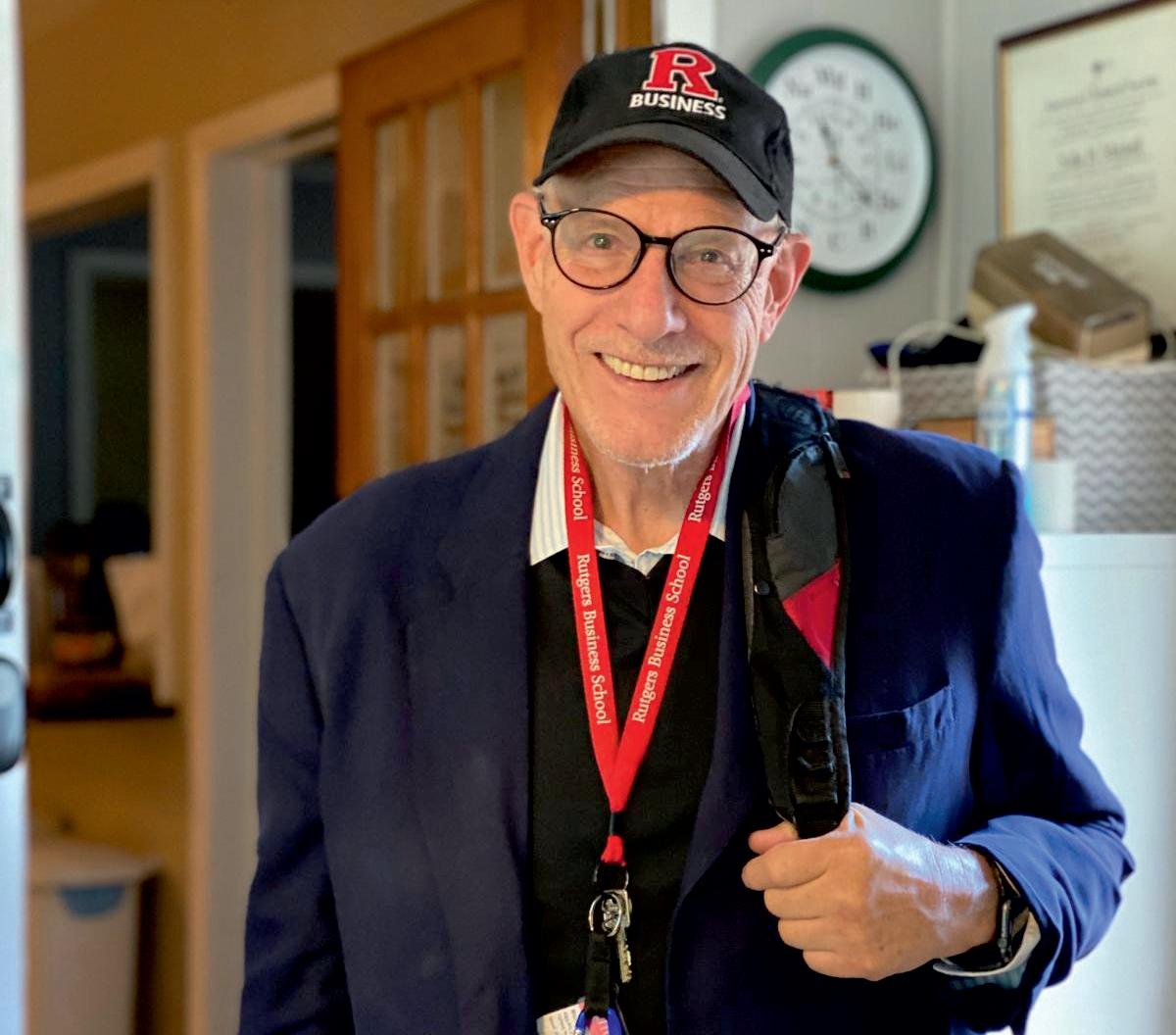



“Leadership means guiding individuals and teams toward mission fulfillment with clarity and collabora�on.”
machine-produced content may not be able to succeed in a meritocratic,competitivecorporatesphere.
Mitchell's plan for finance education reform is ambitious yet feasible He makes the case for a two-teacher model, with coursestaughtbyatheory-groundedprofessorandanindustry professional.Notonlywoulditincreasethelearningexperience but reflect the interdisciplinary teamwork that exists in actual businesssettings It'saninnovativestrategythathelpssolveone of the biggest issues confronting higher education the disconnectbetweenclassroomandworkplace.
Healsocallsoninstitutionstorethinkthewaytheyvaluetheir adjunctandnon-tenure-trackfacultymemberswhohaveahigh course load but receive little institutional worth or reward. Accordingtohim,valuingprofessionalexperienceequallywith academic credentials will bring depth and reality to business education
eaching Philosophy: Reality Over oric
Mitchell welcomes his classrooms to an tically pragmatic approach. He is businessschoolsmusttrainstudents ot entertainment "Your employer 'reentertained,"hepointsout,"they utput "Thatmindsethasinformeda s clarity, responsibility, and critical
porate capstone projects in which implement theoretical concepts into actual se are capped with formal ous ones graded by industry hell brings personally to campus nts get worthwhile exposure to ually turning into loose networking betweenindustryandacademia.
Heisparticularlycynicalofthetrendinclassroomgamification and uncritical acceptance ofAI tools in writing at university WhileheisquicktorecognizethevalueofAIasanassistant,he insists that authentic learning is the result of doing through writing, researching, presenting, problem-solving without cheating. He cautions that students instructed to rely upon
Parallel to his academic career, Mitchell has developed a successful practice in entrepreneurial leadership and consulting.As President of The Riderwood Group,aboutique investmentandadvisorycompany,headvisedearly-stageand mid-sized technology ventures through the nuance of capital formation and organizational structure His firm offered strategic consulting across the complete range of financial modeling, through business development and investor relations.
This experience provided Mitchell with an advanced level of knowledgeofthestartupecosystem afeelingthathetakesto theclassroomtodemonstratetheissuesofvaluation,financing, andexpansionofinnovation-basedbusinesses Italsomadehim a popular advisor among venture capital and private equity firms.
Atrailblazer of online education years before the COVID-19 crisis, Mitchell created and taught some of the earliest online financecoursesatColumbiaandRutgers Hisclassesreached students on continents fromAmerica to China, Russia, and Germany echoinghisconvictionthatfinancialknowledgeis notsite-specific.
Instead of depending on passive media and recorded lectures, hisclasseswereinteractive,discussion-based,anddynamic
“The future of finance educa�on lies in valuing both academic rigor and real-world experience equally.”

They were a reflection of careful experimentation with pedagogy in the age of the internet, affirming the strength of interaction,eveninonlineclassrooms
Hislegacyhassetastandardofexcellenceinonlinelearning, demonstrating how academic quality can be sustained in a rapidlyevolvingtechnologicalenvironment

ofthemostvaluedfinancecommentators,Mitchellhashad ionsoneverythingfrominsurancetoeducationinscoresof letHubnewsstoriesandbusinesspublications Hedescribes plex financial concepts without losing their relevance a that benefits him as much as a good educator as a good er. For money management and economic policy, and for itcarduse,theissuesareaddressedonthesamescholarly basisthathedoesintheclassroom.
Senior Editor role at Distressions solidified his place in ncial conversation even more The newsletter addressed a ll but powerful audience of high-yield investors with weekly macroeconomic comments on conditions, market als, and investment ideas. His skill at breaking down plex information into straightforward commentary blished Distressions as a respected source among finance professionals.
ntorship,Impact,andStudentSuccess
or Mitchell, education is always transformative. He deals with his vocation as intensely personal, far too often extending mentorship outside the boundaries of the classroom. His former students often credit him with professional confidence and analytic thinking skills for lessonslearnedunderhismentorship
Student feedback tends to revolve around his extensive knowledge, interactive presentation, and demonstrable passionfortheirfieldofwork.Whilesomementionthe lecture style of his classes, all agree that the depth of informationtheylearniswellworthmentalexercise.His capacity to push students to achieve more, think more critically, and behave more positively within their organizations makes him one of the most respected facultymembersofRutgers.
tchell is also skilled at leadership outside of teaching He leadershipofteamsinacorporateoracademicsettingasa
learning experience itself. He positions himself interchangeably as a senior executive, coach, and educator, leading people and groups to mission success and strategic distinction
Whateverthebusinessinitiativeorgroupproject,Mitchellisthe individualwhocallstheshotsatbuildingenvironmentswhere personal growth and high performance become synonymous. Through focusing on teamwork, clear objectives, and organizational effectiveness, he inspires future leaders in all fieldsofendeavor
In a world where AI, automation, and changing economic realities discontinue traditional career paths, Mitchell is adamantthatreality-basedlearningisthemostpowerfulengine for positive progress in society. He views finance as not a scienceofnumbers,butratherafieldinwhichsoundstrategic thinking, moral intelligence, and human judgment are more essentialthanever
His legacy speaks to what can be accomplished through education when led by mission, integrity, and profound understanding of the world that exists outside the campus environment.
Mitchellisthegoldstandardforfinancialeducation Hislifeis one of intellectual substance, professional distinction, entrepreneurial wisdom, and loving mentorship. Through his instructional leadership, his call for reform, and his singular dedication to preparing students to succeed in the real world, Mitchell continues to mold the next generation of financial professionals—andindirectly,theveryfutureofthefinancial servicesindustry
In a time of increasing domination by digital quick cuts and superficial connection, Mitchell is a professor who will not settleforshortcuts,whodemandsintegrity,andwhodemands excellence.Hisisnotjusttheresumeofanacademic,butofa visionary educator whose influence is measurable not just in qualificationsorhonors,butinthechangedlivesthathehasleft behind
In this era of technological revolution and international connectivitysweepingtheworld,highereducationisalso being transformed Conventional pedagogy is no longer holdinghighereducationinplacebutisslowlymakingwayfor newer innovative methods to advance learning, stimulate research,andenablelearning.Academicinnovationinthiserais a three-legged process of curriculum transformation, embracing technology, and educational equality. With universities and colleges working to stay relevant and responsive, being adaptable and becoming responsive to changing trends and transformational trends is a necessity for students,facultymembers,andadministrators
This article outlines three areas that show how institutions are redesigningthefutureofeducationinnovelwaysasaresponse tochangingneedsinsocietyandevolvingglobalissues
Technology has emerged as the prime amenity in scholarship building,reshapingprovisionandconsumptionofknowledge. Advances in virtual worlds, adaptive learning systems, and artificial intelligence have produced new learning environments where teaching may be individualized and student achievement maximized to a degree previously unknown Learning management systems are now mature technologies that support evidence-based teaching, and technology allows real-time collaboration, feedback, and interaction.Universitiesareinvestingmoreinhybridandonline learning infrastructure, thereby extending access to other learner groups. Furthermore, post-pandemic internet-based learningacceleratedcontentdeliveryandtestinginnovation
Virtual laboratory environments, simulation, and game-based learninglabsaretransformingclassicscienceandengineering


disciplines into participatory, stimulating environments. Faculty development programs themselves are being reengineered to train instructors with digital skills to take advantage of these tools As students increasingly demand flexible,technology-mediatedlearningenvironments,colleges anduniversitiesarerequiredtobalancetechnologydeployment and reflective pedagogical design between learning outcomes andaccessibility.
Innovationineducationisnotnecessarilyaboutapplyingnew andemergingtechnologies,butmoreaboutreframingthevery nature of learning and teaching Professors are moving away from the traditional lecture method to student-driven approaches such as active learning, inquiry, and collaborative work. Approaches such as flipped classrooms, project-based learning, and experience-based learning are increasingly popular across the board These approaches engage students more intensely in topic matter and recover their learning experientiallyinordertopromotecriticalthinkingandproblemsolving skills Interdisciplinary learning is emerging as a characteristichallmarkofastutescholarlypractice
Bybreakingdownexistingdepartmentalsilos,universitiesare building curricula that recognize the interrelatedness of the issuesoftheday,fromsocialjusticeandglobalhealthtoclimate change Cross-disciplinary curricula challenge students to address issues from multiple perspectives, promoting intellectual adaptability and civic engagement Colleges are alsomakingpartnershipswithbusiness,government,andnonprofitsectorsacrossindustriestofacilitatestudents'exposureto workandlearningexperiencesintherealworld.Theresultisa faster, more adaptive model of education poised to prepare graduatestofaceanincreasinglyevolvingcareerlandscapeand globaleconomy
Thestrongestofthemodernpillarsofacademicinnovationis the push toward greater diversity and equity in education. Colleges and universities are working to close achievement gapsforstudents,offersupporttounderrepresentedgroups,and offeraccesstohigh-qualitylearningtoallstudents Thisisdone throughcurriculumthatincorporatesmorethanoneview,using culturally responsive teaching, and more support and investment. Technological innovations also drive equity as schools adopt data analysis to detect and remove obstacles to studentachievementinreal-time.
Global cooperation has also entered the realm of education innovation. Greater virtual exchange, double degrees, and cross-bordercollaborativeresearchtranslateintostudentsand teachers working together more than ever before, across borders This collaboration enhances cross-cultural exchange, increases the scale of higher education, and develops global citizenship Additionally, international perspective incorporationincurriculumforstudiesmakesstudentschangesensitive and capable of contributing meaningfully to an evolvingworld.Asalleducationalinstitutionsinternationalize, they must also synchronize issues of digital access, language, andlawdifferencessothatconnectivitycanbereciprocallyand fruitful
International travel in the guise of new scholarship adopts a middle course between preserving heritage and avoiding change Organizationsmusttaketheleadinordertomasternew technology, support pedagogical innovation, and promote equity and global participation The most successful innovationsarethosearoundwhichthereisacoreofmeeting the learner's needs, developing transdisciplinary minds, and shapinginclusivespacesthatmirrorthediversityoftheworld. Asthenatureofscholarshipitselfkeepsevolving,stakeholders at all levels will be compelled to join hands to establish an educationsystemthatisaccountable,adaptive,andresponsive Withinvestment,withconstantscrutiny,andwithanemphasis onquality,highereducationcanriseaboveadversityandexploit the21st-centuryopportunitiesandequipthenextgenerationof leaders to lead the future through vision, empathy, and innovation.






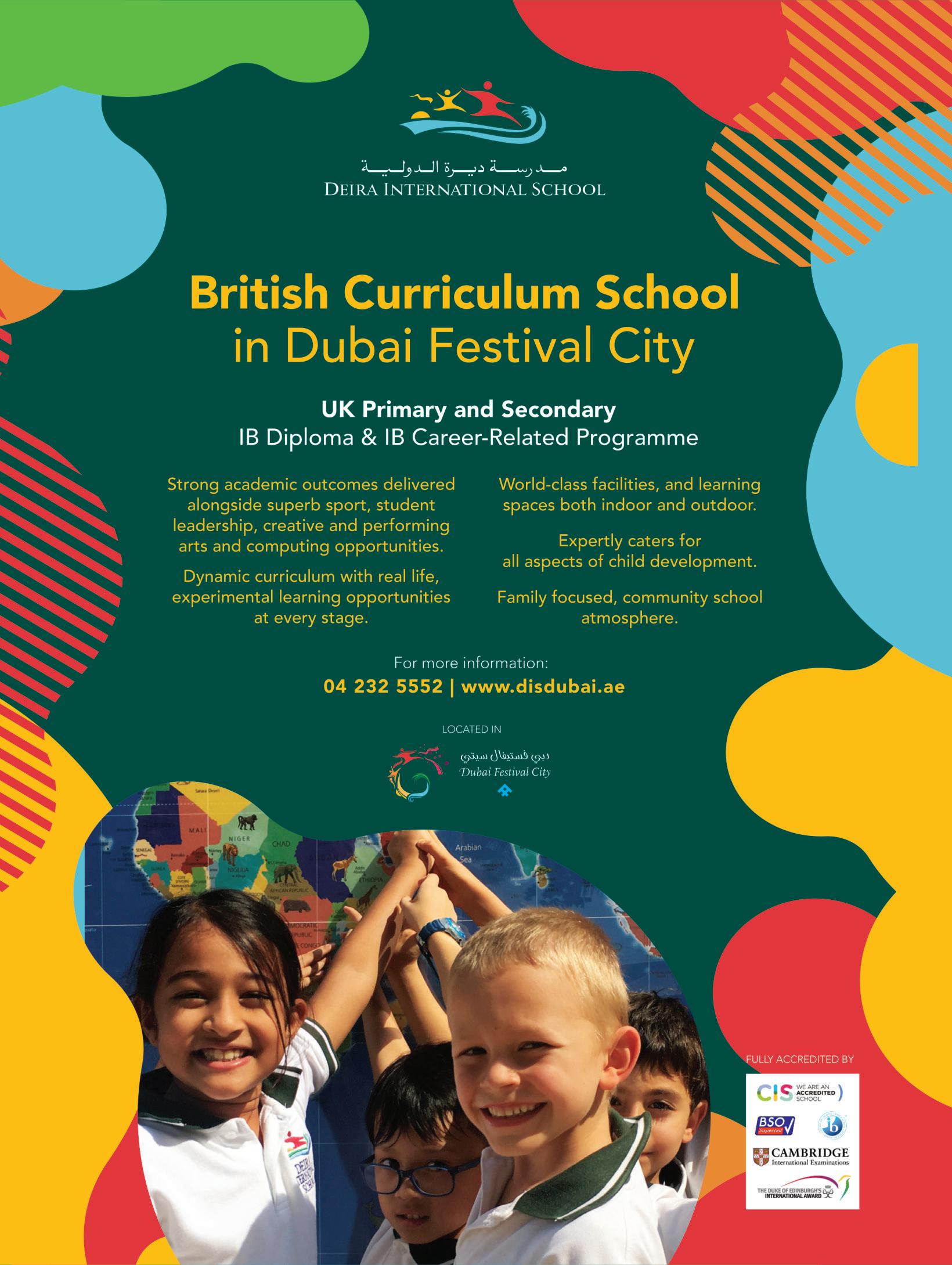




In a rapidly changing world defined by technological progress, globalization, climate shifts, workforce automation, political instability, and socio-economic challenges,educationsystemsaroundtheglobeareevolving topreparelearnersforthecomplexitiesofthe21stcentury Traditional methods of teaching and learning, while still valuable, are increasingly being supplemented or restructured through innovative approaches tailored to modern realities These strategies are designed not only to enhance academic outcomes but also to foster critical thinking, collaboration, creativity, resilience, adaptability, ethicalreasoning,anddigitalliteracy
This article highlights three major areas of innovation in global education: the integration of technology, learnercenteredpedagogies,andglobalcompetencydevelopment.
Thedigitaltransformationofeducationisarguablythemost visibleandimpactfulinnovationofrecentyears,drivenby necessity and opportunity alike. Educational technology (EdTech) has expanded the boundaries of the classroom, makinglearningmoreaccessible,inclusive,andflexiblefor diverselearners Toolssuchaslearningmanagementsystems (LMS), virtual classrooms, and interactive applications enableeducatorstodesignpersonalizedlearningexperiences that adapt to individual student needs and varied learning styles.PlatformslikeKhanAcademy,Coursera,andGoogle Classroomofferscalablesolutionsthatallowstudentsacross geographical and socio-economic divides to access highquality,multilingualeducationalresourcesfromanywhere.
Moreover,artificialintelligence(AI)anddataanalyticsare reshapingthewayeducatorsassessandrespondtostudent
performanceandlearningbehaviorAI-poweredtutoringsystems canofferreal-timefeedback,whiledata-drivendashboardshelp teachersidentifylearninggapsandadjustinstructionaccordingly for better outcomes In countries like Singapore and Estonia, where digital education strategies are highly developed and government-supported,studentsbenefitfromablendedlearning modelthatintegratesclassroominstructionwithonlinecontent, promotingbothself-directedlearningandteacher-guidedinquiry
A significant innovation in education today is the shift from teacher-centered instruction to learner-centered pedagogies that promotedeeper,morepersonalizedengagement.Thisapproach prioritizes student agency, encouraging learners to take responsibilityfortheireducationbymakingchoicesaboutwhat and how they learn Inquiry-based learning, project-based learning (PBL), and problem-solving tasks are increasingly favored over rote memorization and passive listening These methods cultivate essential skills such as teamwork, communication,digitalfluency,leadership,andadaptability qualities indispensableinmodern,technology-drivenworkplaces.
Experiential learning, which emphasizes learning through experience,isalsogainingtractiongloballyacrossdifferentlevels of education and socio-economic settings. Programs that incorporate internships, community service, environmental stewardship, and entrepreneurship provide students with realworldcontextsinwhichtoapplytheirknowledgemeaningfully andsustainably.Finland’seducationsystem,oftencitedasoneof the world’s most progressive, integrates thematic learning and cross-disciplinary projects that connect students with real-life challenges Similarly, in Kenya and India, grassroots initiatives focus on vocational education and practical skills, preparing students for the local job market and fostering self-reliance, innovation,andcommunitydevelopment.
In an increasingly interconnected world, education must also equip learners with the ability to understand and engage with diverse cultures, perspectives, and global issues Global competencereferstothecapacitytoexaminelocal,global,and interculturalissuescriticallyandtocommunicateeffectivelywith peoplefromdifferentbackgroundsandworldviews.International organizations such as the OECD and UNESCO have placed a strongemphasisonintegratingglobalcompetenceintocurricula, teachertraining,andschoolpoliciesacrosseducationalsystems worldwide
One innovative approach in this area is the implementation of internationalcollaborationsandexchangeprogramsfacilitatedby digital platforms and emerging communication technologies Through virtual exchange initiatives, students from different countriescanengageincollaborativeprojects,discussions,and problem-solvingactivitiesthatfosterinterculturalunderstanding andglobalteamwork.Theseinteractionshelpdevelopempathy, culturalawareness,andasenseofglobalcitizenshipandethical responsibilityAdditionally,curriculumframeworksareevolving toincludeglobalthemessuchassustainability,climatechange, digitalethics,andhumanrights TheInternationalBaccalaureate (IB)program,offeredinover150countries,isaprimeexampleof how education can nurture globally minded learners who are prepared to tackle complex, transnational challenges of the modernworld.
Asglobalchallengesgrowmorecomplex,theneedforinnovative approaches in education becomes increasingly urgent and universally recognized across all regions. By leveraging technology, adopting learner-centered and experiential pedagogies, and cultivating global competence, education systemscanbetterpreparestudentsfortherealitiesofthemodern, interconnected world These innovations are not limited to wealthyorhighlydevelopedcountries;rather,theycanbeadapted and scaled to meet the needs of diverse educational contexts, including marginalized and underserved communities. As governments,educators,andcommunitiescontinuetoinvestin and refine these strategies through policy reforms, professional development,andinfrastructureimprovements,thepromiseofa moreinclusive,effective,andforward-lookingeducationsystem becomesincreasinglyattainableandsustainable










